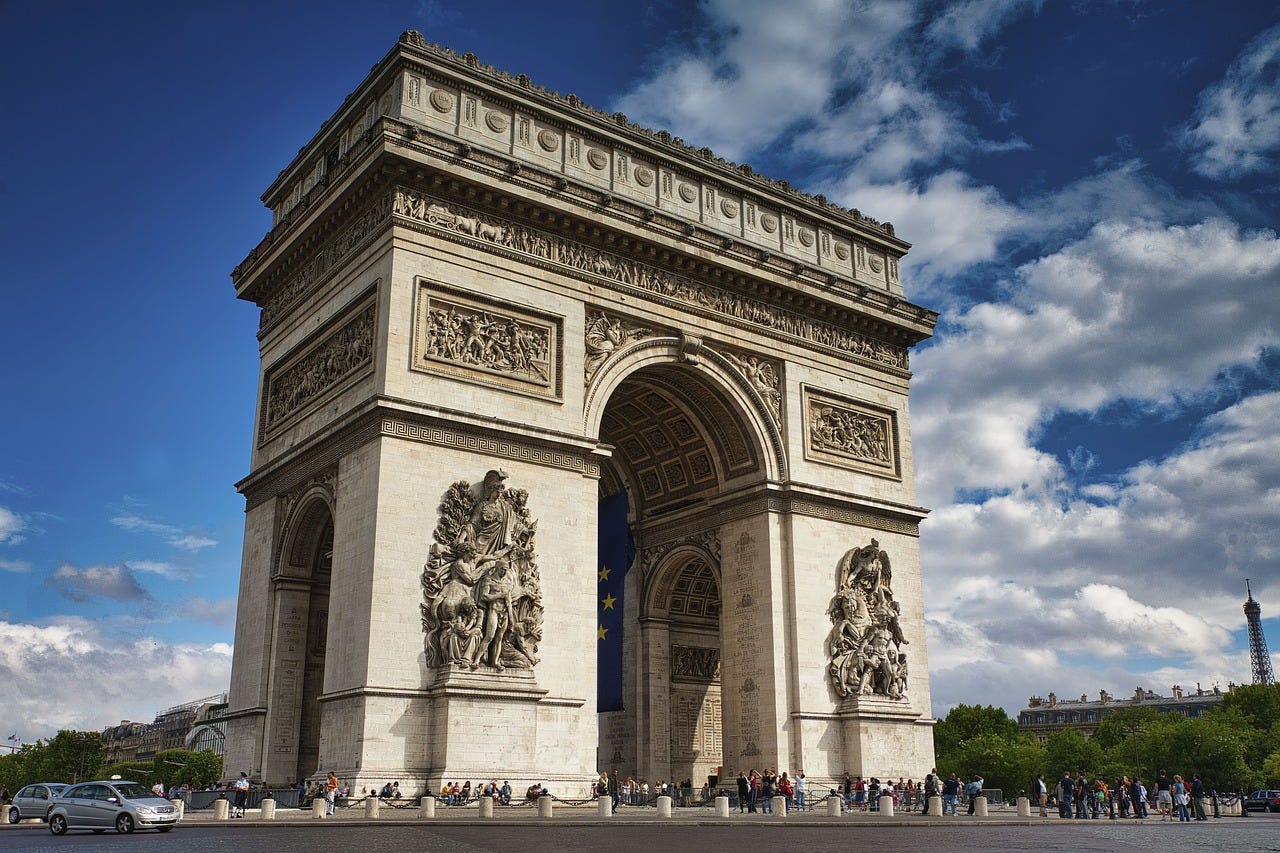French Business Sentiment Improves as Political Headwinds Ease
France business confidence rises, as German and British sentiment plummets

Business sentiment in France increased slightly in September as the political instability that has embroiled Europe’s second-largest economy showed signs of easing since a far-left alliance won snap elections in July.
The French business climate composite indicator rose to 97.5 points this month, compared with 96.7 points in August, the National Institute of Statistics and Economic Studies (INSEE) said on September 20. The retail trade business climate indicator rose three points to 100, while manufacturing and services were unchanged at 98 points each in September.
The country’s employment climate indicators rose for the third straight month to 99.6 points, moving closer to its long-term average (100). “This improvement is mainly the result of the rise in the balance of opinion regarding the expected change in the workforce size in services (excluding temporary work agencies),” INSEE said.
The improvement in the country’s business sentiment contrasts sharply with its neighbor Germany, the Eurozone’s biggest economy, where “the hope for a swift improvement in the economic situation is visibly fading,” the ZEW Institute said on September 17.
The ZEW Indicator of Economic Sentiment for Germany dropped to 3.6 points, or 15.6 points below the August value. The assessment of the economic situation in Germany fell 7.2 points to a new value of minus 84.5 points, its lowest since May 2020, according to ZEW.
It also contrasts with the United Kingdom, where consumer confidence crashed in September by the most in two-and-a-half years. Research firm GfK said on September 20 that its monthly confidence index fell 7 points to minus 20 as households turned negative on the outlook for both their personal finances and the economy.
Macron Gets PM
The improved business sentiment in France comes as President Emmanuel Macron appears to be making strides in resolving the country’s leadership vacuum since the far-left alliance won the second round of snap elections. Macron took a political risk by calling for two rounds of snap elections on June 30 and July 7 after his centrist Renaissance party’s poor performance in the European Parliament elections.
Macron appointed on September 5 Michel Barnier as the nation’s new Prime Minister (PM), angering his erstwhile allies in the New Popular Front (NPF). The 73-year-old Barnier- now the oldest PM in the history of the Fifth Republic- has officially accepted the reins from France’s youngest-ever PM, Gabriel Attal, who had been acting as interim caretaker of the government upon resigning following the July vote.
Many far-left members of the NFP coalition are far less sanguine about Macron’s selection, viewing the president’s choice of Barnier over their preferred candidate, the self-described “left-wing” former socialist party member Lucie Castets, as a “democratic denial.”
Paris has witnessed a series of “rancorous” protests against the appointment, the beginning of what “France Unbowed” (LFI) party leader and member of the NFP Jean-Luc Mélonchon, has vowed “will be a long battle.” While fellow LFI MP Mathilde Panot has called for further demonstrations “against this unacceptable coup de force in a democracy.”
National Rally party (RN) leader Marine Le Pen wrote on X that, “Michel Barnier seems to meet at least the first criterion we asked for, i.e., someone who is respectful of the different political forces and capable of addressing the National Rally.” The National Rally “will demand that the new head of government respects the 11 million French people who voted for the RN and respects their ideas.”
EU’s Chief Negotiator
A former foreign affairs, European affairs, and agricultural minister, Barnier was first elected to parliament in 1978 and hails from France’s center-right Republican Party (LP). Barnier is most widely known for his role as the European Union’s (EU) chief negotiator during the Brexit negotiations with the UK, in which “Barnier won considerable respect from his handling of the process.”
In a statement addressing Marcon’s selection of Barnier, the Élysée Palace said the new prime minister “meets the conditions to be as stable as possible and give themselves [the new government] the chances to gather the widest possible support.”
Barnier is “really the only name that Emmanuel Macron came up with that he believes will not face a vote of no-confidence, and the reason for that is that the National Rally have said that it will not vote a vote of no-confidence and make this government collapse,” Bloomberg News’ Caroline Connan said.
Barnier has presented himself as a leader willing with everyone he can. He also said that his new task will involve “lots of listening, lots of respect,” and that he is committed to “responding, as much as we can, to the challenges, to the angers, to the suffering [of the French public].”
Economic Challenges
Despite the slight improvement in business sentiment in September, France must address its difficult economic challenges. France’s national auditor raised concerns in July about the nation’s deteriorating fiscal situation.
The national budget deficit increased to 5.5% of gross domestic product (GDP) last year from 4.8% in 2022, making it the second-highest debt-to-GDP ratio in the EU after Italy. Brussels announced disciplinary proceedings against France, and six other EU countries, for their deficits.
Barnier “is very well known at the EU level and a reassuring figure for Brussels,” Connan said. Should the new PM survive any prospective no-confidence challenges, his influence may help France to navigate a tumultuous economic landscape and avoid further tension with Brussels.
Barnier has also advocated for stricter immigration policies, calling for France to break with EU court doctrine regarding immigration in order to allow France “space to maneuver” in setting its own migration quotas. He has also expressed that “immigration control” along with education and security will function as cornerstones of his policies as prime minister.







A very well written article.